‘They’ve smelled blood’: battle for 2028 presidency begins in Philippines
A surprising Duterte-Marcos midterm stalemate has shifted focus to the vice-president’s impeachment fight – and the next presidential race
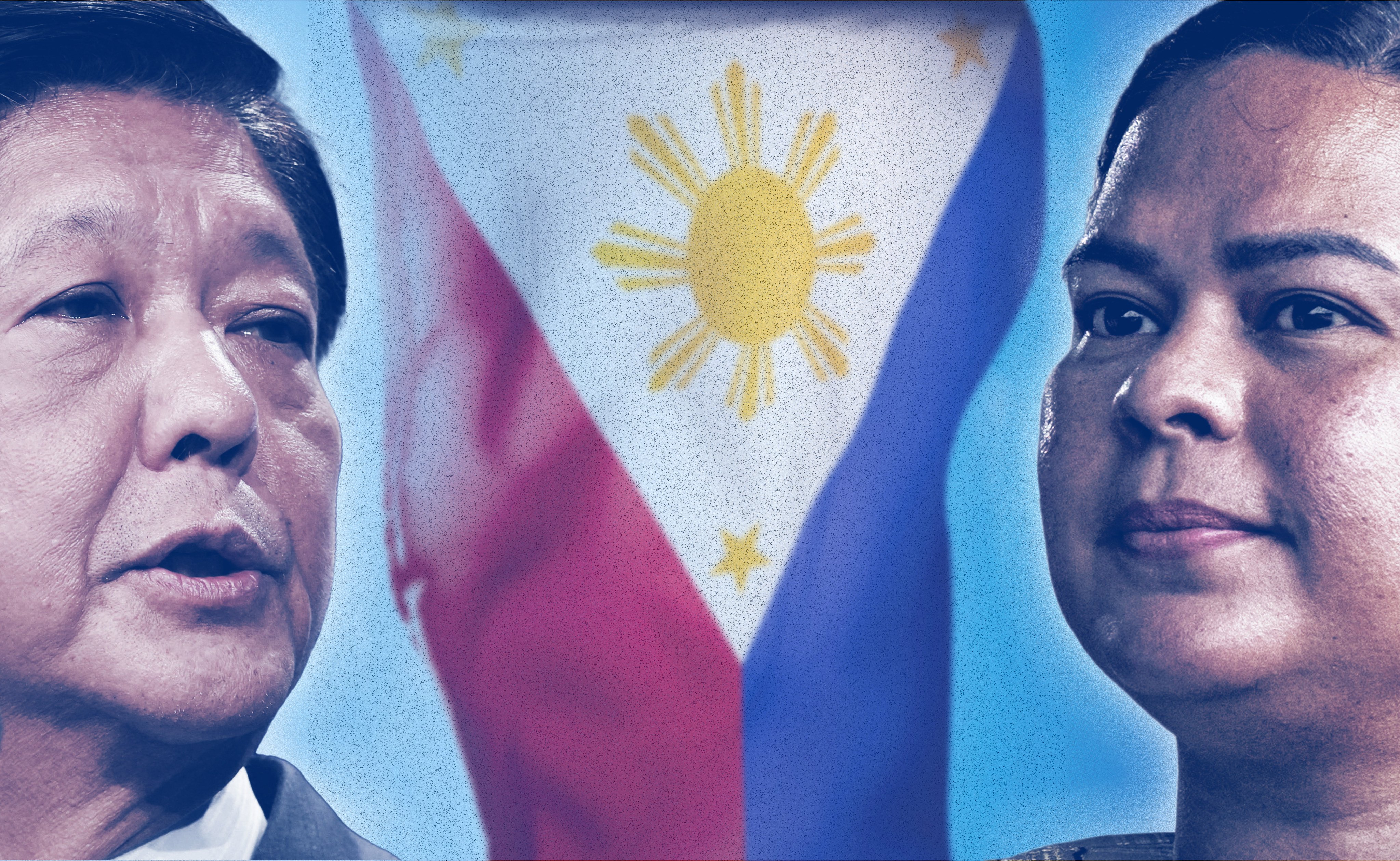
As the dust settles from the shock of the Philippines’ midterm election, it is clear that President Ferdinand Marcos Jnr and his dynastic rivals, the Dutertes, have fought to a stalemate, with both camps securing an equal number of Senate seats.
This political deadlock ensures that the immediate focus of national politics will revolve around the rivalry between the two powerful clans. For Marcos’ administration, pressing economic and foreign-policy issues are likely to take a back seat to two urgent priorities: removing Sara Duterte-Carpio from the vice-presidency, and preparing for the 2028 presidential race.
“All politicians’ attention will be on 2028, on who has the best chance of winning,” said Ronald Llamas, political strategist and former presidential adviser.
“Whether overtly or covertly, politicians will begin to gravitate to whoever is No 1 or No 2 in surveys for the presidential elections,” he told This Week in Asia.
Unfortunately for the Marcoses, early surveys have not been kind. President Marcos himself is barred from seeking re-election in 2028 by constitutional term limits, even if his popularity were higher. His cousin, House Speaker Martin Romualdez, has been floated as a potential contender, but his abysmal approval ratings – reportedly less than 1 per cent – make him an unlikely flag-bearer for the Marcos camp.
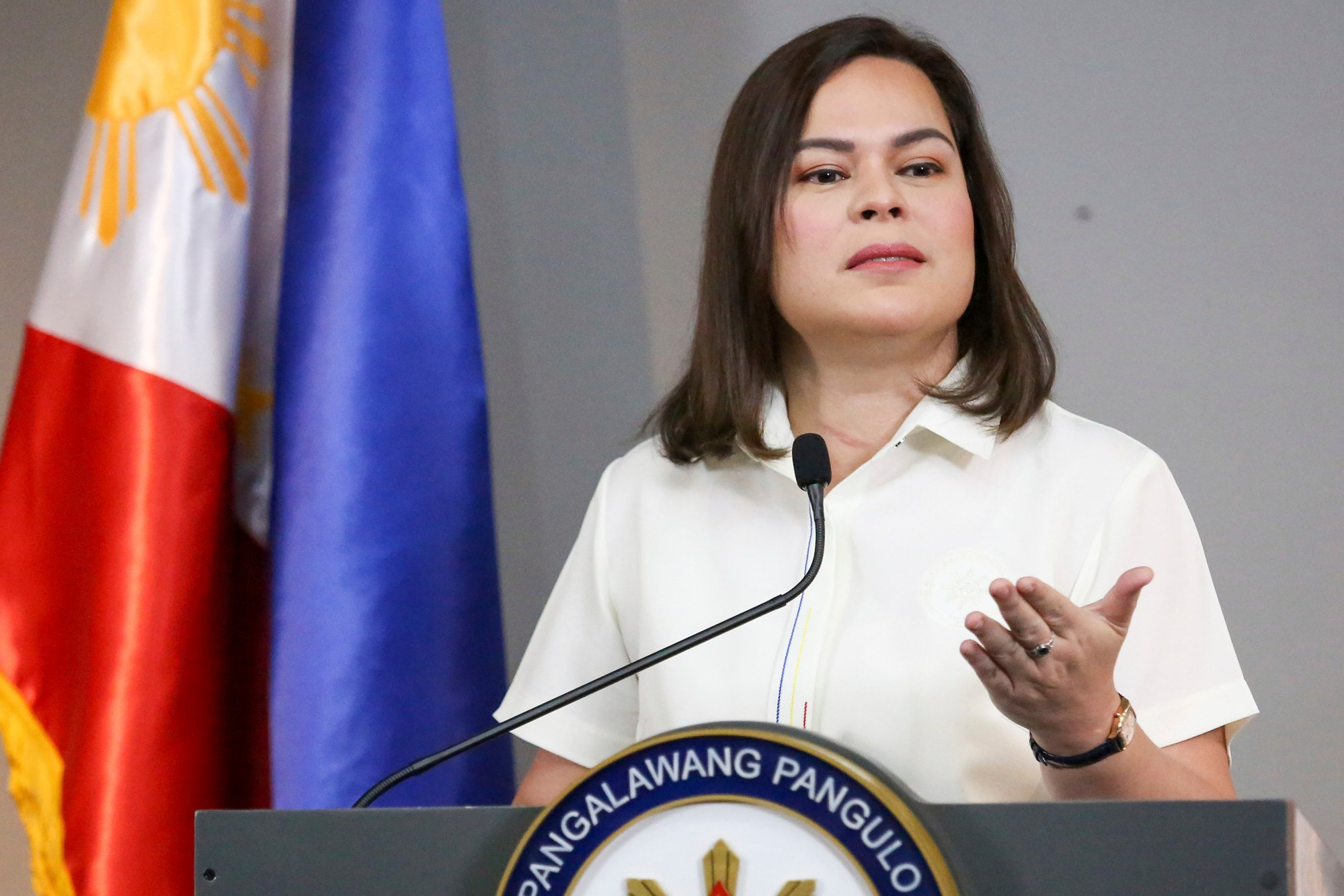
By contrast, Duterte-Carpio remains a formidable challenger, buoyed by the enduring popularity of her father, former president Rodrigo Duterte. “Her ratings have dropped but they’re still high,” Llamas said.
This makes the Senate impeachment trial against the vice-president, set to begin on Tuesday, all the more pivotal. The Marcoses need her to be convicted and barred her from public office to neutralise her as a threat.
But if she survives the trial and retains the vice-presidency, she will not only be well-positioned for the 2028 presidential race but will also assume the top job should anything happen to Marcos.
Historian and political commentator Manolo Quezon warned that the election results “will light a fire under the Marcoses, who see 2028 and a Duterte restoration as literally an existential threat”.
When Congress reopens on Monday, the battle will intensify, with both sides vying for control of the legislature’s two branches and to determine the procedural framework for Duterte-Carpio’s impeachment trial in a high-stakes showdown that could go either way.
‘Surprised and disappointed’
Marcos entered the midterm election brimming with confidence that his party and its allies could easily sweep the 12 Senate seats up for grabs.
His camp had fielded a full slate of candidates, including seasoned political veterans and celebrities such as Manny Pacquiao, the former boxer and senator. By contrast, the Duterte faction managed to muster only eight candidates, a hodgepodge of popular figures and questionable personalities.
Yet the results defied expectations. Both camps ended up securing five Senate seats each, leaving Marcos stunned. Adding insult to injury, two of his own candidates – his sister Imee Marcos and Camille Villar, daughter of billionaire tycoon Manuel Villar – defected to the Duterte slate just before the election and subsequently won.
Surprisingly, the final two Senate seats went to candidates from the so-called third force, a civil society-oriented coalition long derided by Marcos and Duterte loyalists as “yellow”. These dark-horse winners, who had also been dismissed by analysts and polling data, managed to secure two seats in the House of Representatives as well, further upending political calculations.
“It’s a surprise because the surveys did not match the results,” said Dr Jean Franco, a political-science professor at the University of the Philippines. “I am pretty sure they [the Dutertes and Marcoses] were surprised and disappointed.”
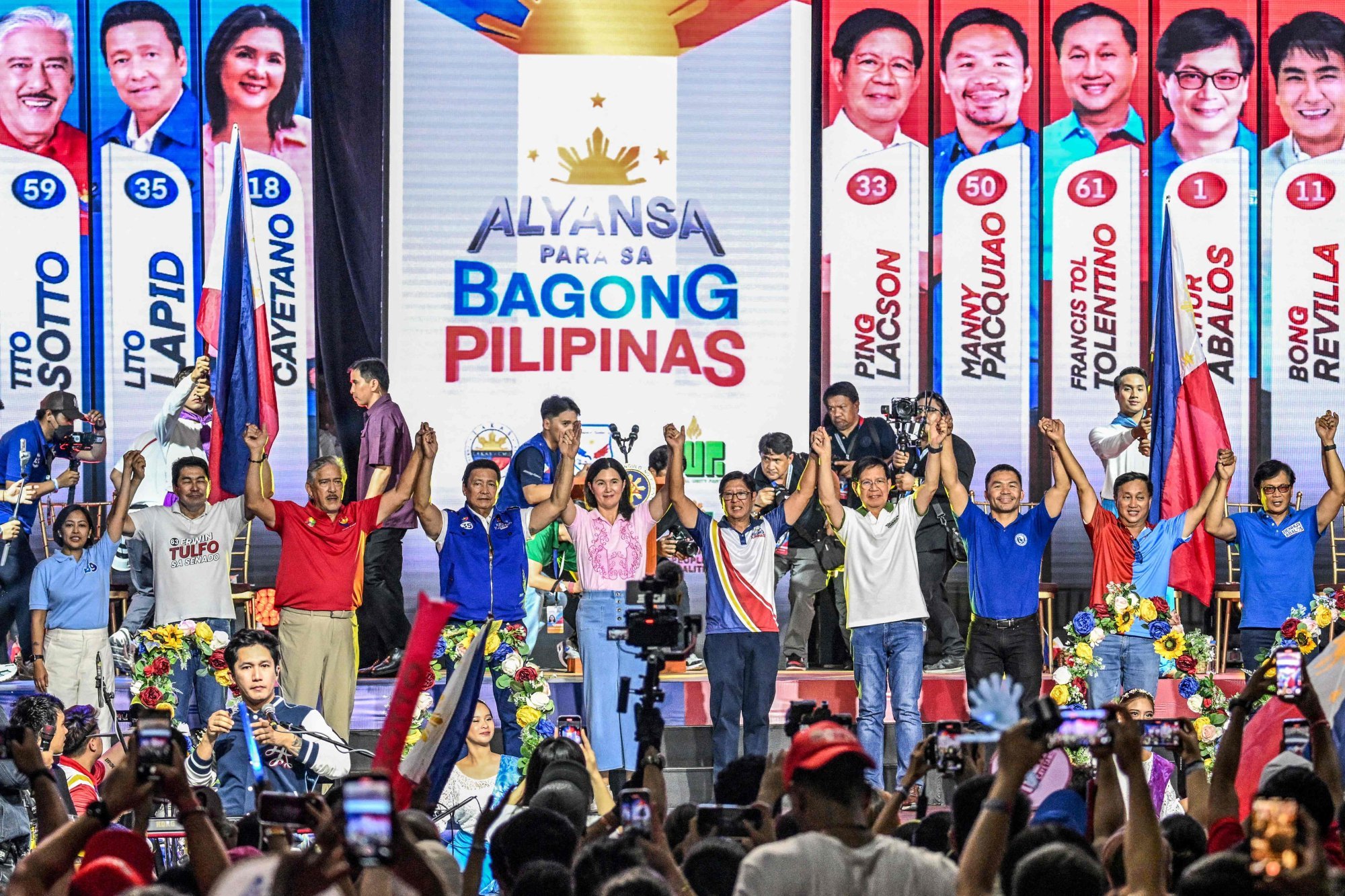
Walden Bello, an economist and former congressman, told This Week in Asia that there was disarray within the Marcos camp. “Marcos is confused and lost, and has been especially so since the election. The whole Marcos camp is in a quandary,” he said.
But neither side fielded a particularly strong slate of candidates, according to Quezon. “The Marcos candidates were tied to a president with sinking popularity,” he said. “The Dutertes couldn’t put together a viable slate in the first place, most were hopeless and not serious candidates.”
This lacklustre line-up likely discouraged voters from fully filling out their ballot papers, Quezon said, citing anecdotal evidence of forms being submitted half-filled. Others opted for so-called yellow candidates “who had clear advocacies that were attractive”, he said.
In elections for the Philippine Senate, voters can choose up to 12 candidates and those with the highest number of votes are ultimately elected.
A Senate sweep would have dramatically strengthened the Marcos administration’s hand in removing Vice-President Duterte-Carpio from office. Convicting her in an impeachment trial requires 16 of the Senate’s 24 votes, but she needs only nine senators to block her conviction – whether by voting against it, abstaining, or simply failing to appear for the vote.
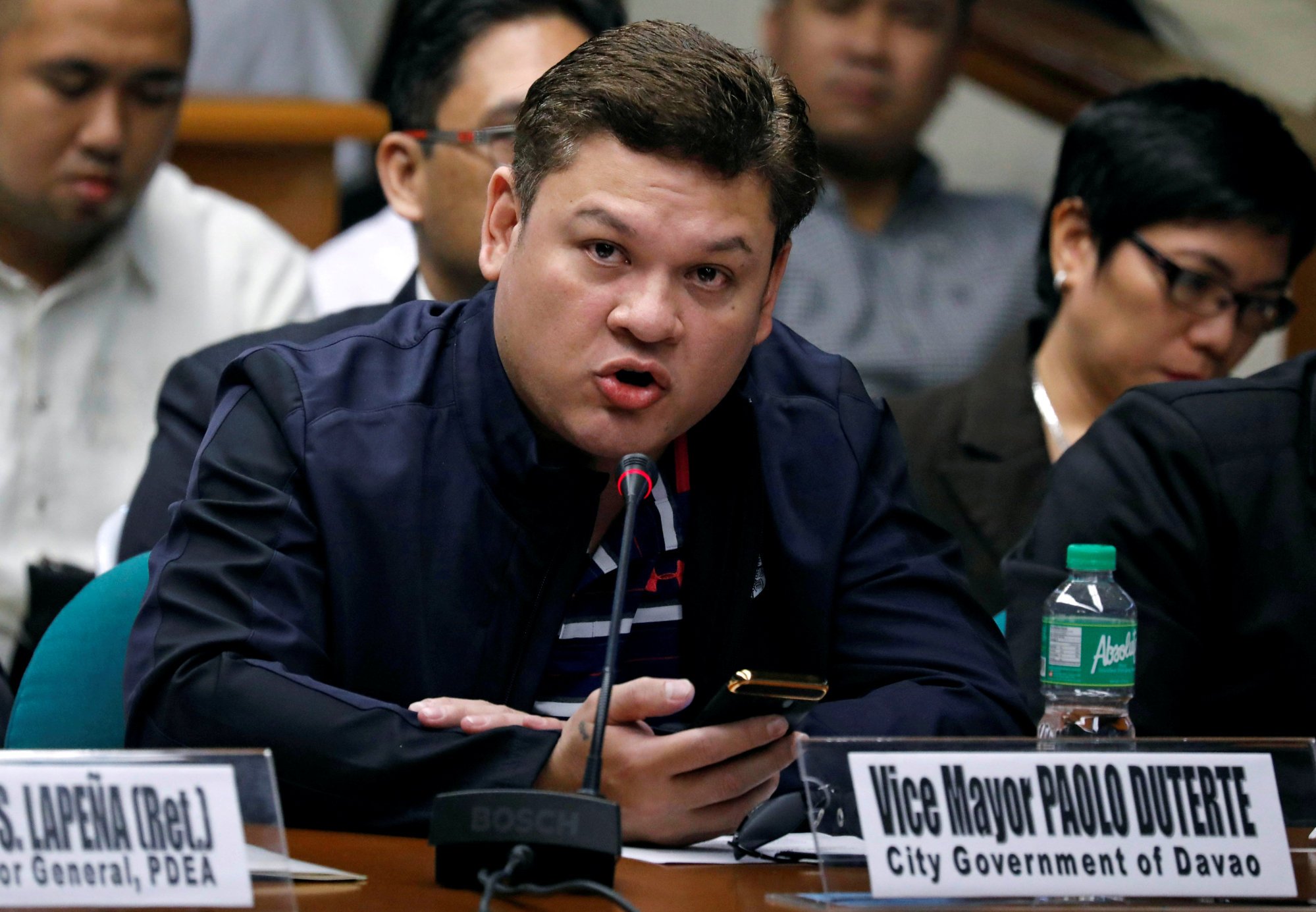
The battle for congressional leadership has already begun. Duterte-Carpio has announced her support for her brother Paolo Duterte to become speaker in the House of Representatives, a powerful post. In what appears to be a pre-emptive move, 285 out of 316 congressmen voiced their support on May 25 for the current House Speaker Romualdez.
Meanwhile, in the Senate, the increased number of pro-Duterte senators has raised the possibility of a leadership shake-up, as whoever holds the Senate presidency will preside over Duterte-Carpio’s impeachment trial.
Unless the Supreme Court intervenes – an option that Duterte-Carpio has formally requested – House prosecutors are set to appear before the Senate on June 11 to read the seven impeachment charges that were approved by the House in February, including allegations of corruption and abuse of power.
The Senate is scheduled to convene later that week as an impeachment court. However, this process itself could be derailed if Duterte allies succeed in unseating Senate President Francis “Chiz” Escudero, who first announced the impeachment timeline on May 21, before suddenly rescheduling on Thursday to a later date.
Two of Duterte-Carpio’s allies – senators Robin Padilla and Imee Marcos – have already expressed interest in taking over the Senate presidency. Either could replace Escudero. The fallout from the midterm election has made such power plays inevitable.
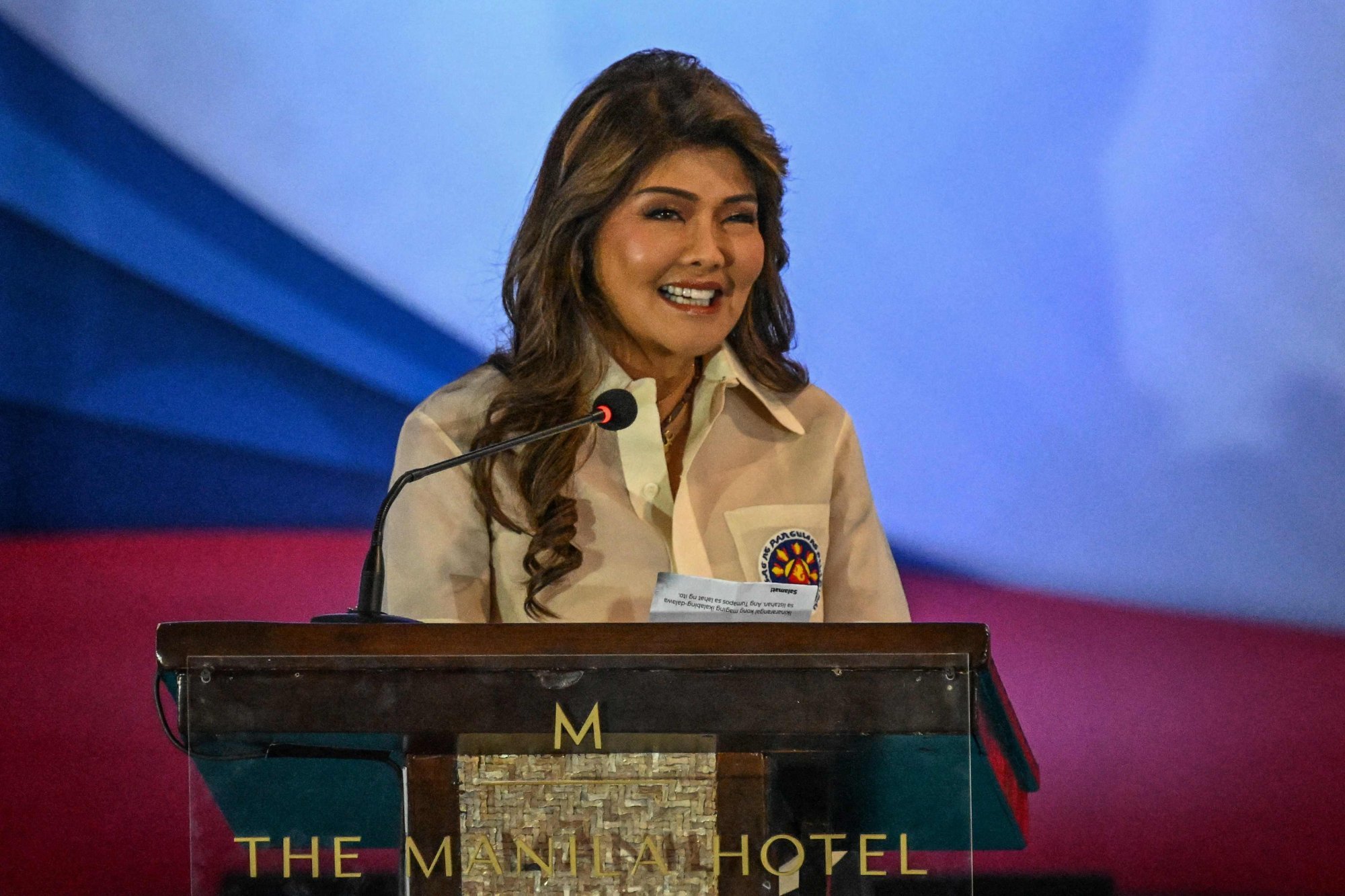
Reconciliation rejected?
On the face of it, Marcos has an overwhelming advantage in his battle against the Dutertes. He wields the powers of the presidency and controls an extensive network of government agencies. His administration has dealt a number of blows to the Duterte camp: subjecting its notorious troll farms to a congressional inquiry, dismantling a major news network that had supported the former president, and forcing at least one prominent Duterte ally to flee abroad.
The most decisive blow came earlier this year when ex-president Duterte was detained and extradited to the International Criminal Court in The Hague, where he remains imprisoned, awaiting trial for crimes against humanity.
Other allies, including two re-elected senators and possibly even Duterte-Carpio herself, may soon face similar fates.
But these bold moves mask Marcos’ vulnerabilities. His popularity is low, and his leadership style – once seen as his greatest strength – has become his Achilles’ heel. The easy-going amiability that endeared him to voters during his presidential campaign now serves to highlight his indecision and perceived weakness. Critics have labelled him colourless and ineffectual, a leader unable to assert himself even in the face of public insults from the Dutertes.
Last year, Duterte-Carpio brazenly confessed to imagining beheading Marcos. Later, she claimed to have hired an assassin to kill the president, the first lady and House Speaker Romualdez. Yet Marcos offered no public response. He even expressed a desire for reconciliation in an interview on May 19. “Personally, I don’t want conflict. I want to get along with everyone,” he said.
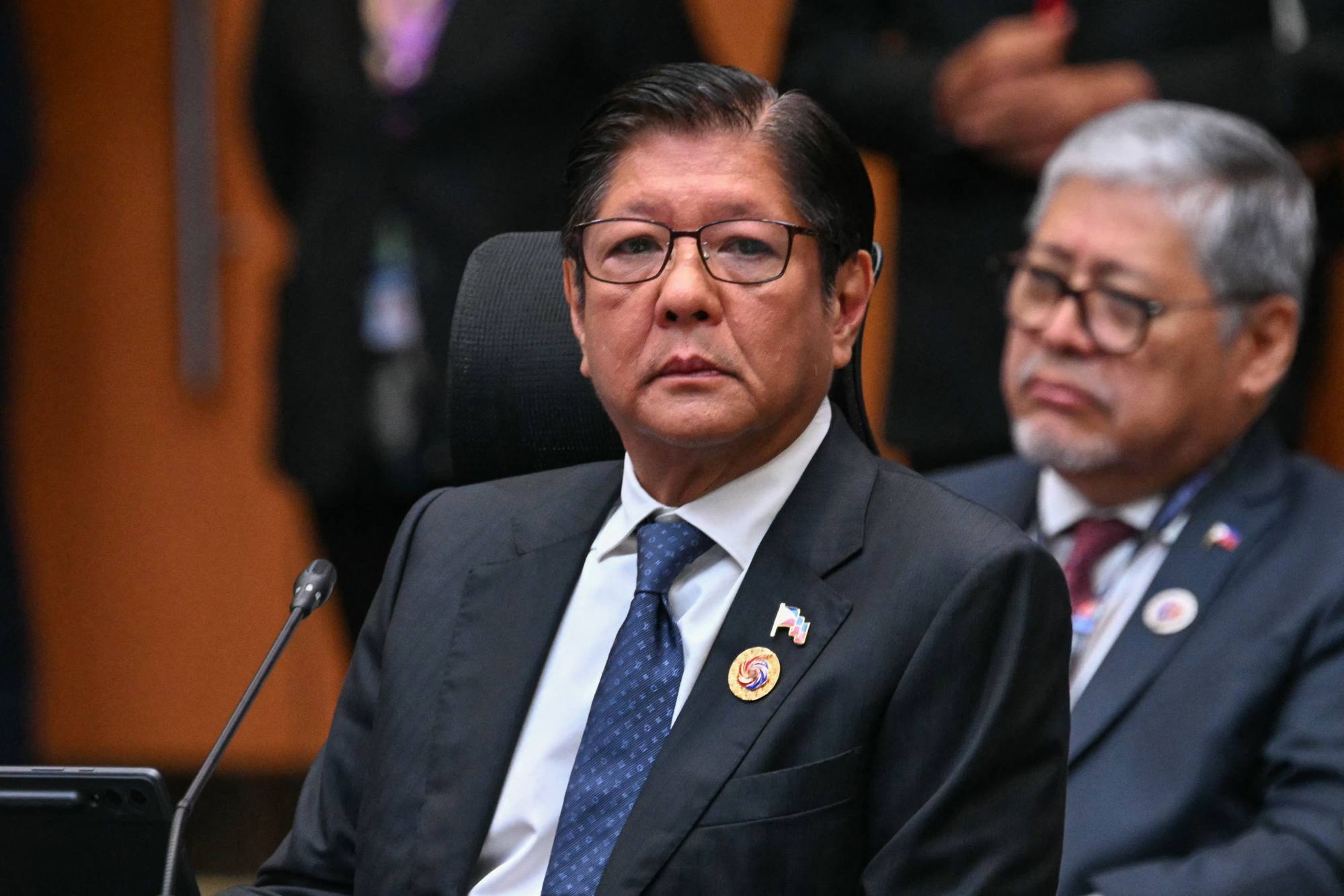
His olive branch was met with silence from the Duterte camp. As was his assertion, in the same interview, that: “I want to be respected but maybe fear is better.”
Marcos attempted to project strength two days later when he ordered his cabinet secretaries to submit their resignations en masse. But even this move appeared more symbolic than substantive.
Quezon, the historian, said the president’s “own willingness to take risks” was now in question. “Who will be capable of the delicate job of managing the impeachment in the Senate?” he asked. “[And] how much is he willing to pay for the outcome he needs?”
That outcome, removing Duterte-Carpio from office, is far from guaranteed. The vice-president has shown no signs of backing down. “I truly want a trial because I want a bloodbath,” she told reporters on May 17, refusing to elaborate further.
Bello believes the Dutertes have no intention of retreating. “They’ve smelled blood, and they won’t let go of the gazelle,” he said.
They’ve smelled blood, and they won’t let go of the gazelleWalden Bello, ex-congressman, on the Dutertes
Dismissing the idea that the Dutertes’ influence was fading, a senior member of Senate staff, speaking on condition of anonymity, reiterated that five of the clan’s candidates had won Senate seats. “It’s hard to say they’re a spent force,” he told This Week in Asia.
Despite being imprisoned in The Hague, Rodrigo Duterte managed to win a mayoral seat in Davao City, his political stronghold, in the midterm election. While he is unlikely to be sworn in, his victory shows the enduring influence of his family name.
Which might explain why the impeachment effort against the ex-president’s daughter is unlikely to succeed, according to analyst Llamas. “From my vantage point, impeachment is doomed,” he said, explaining that the senators who ran under Marcos no longer felt indebted to him now that they had secured their seats.
Still, Marcos has tools at his disposal. As president, he could exert pressure by withholding funds from senators who support Duterte-Carpio’s acquittal, the same Senate official said. But such hardball tactics would require a skilled operator – someone willing to take political risks.
“Marcos needs an operator, a negotiator – a zero-sum guy who doesn’t care about his political future,” the source said. He likened this role to that of the late president Benigno Aquino, who successfully orchestrated the impeachment of Chief Justice Renato Corona in 2012 despite initial low Senate support.
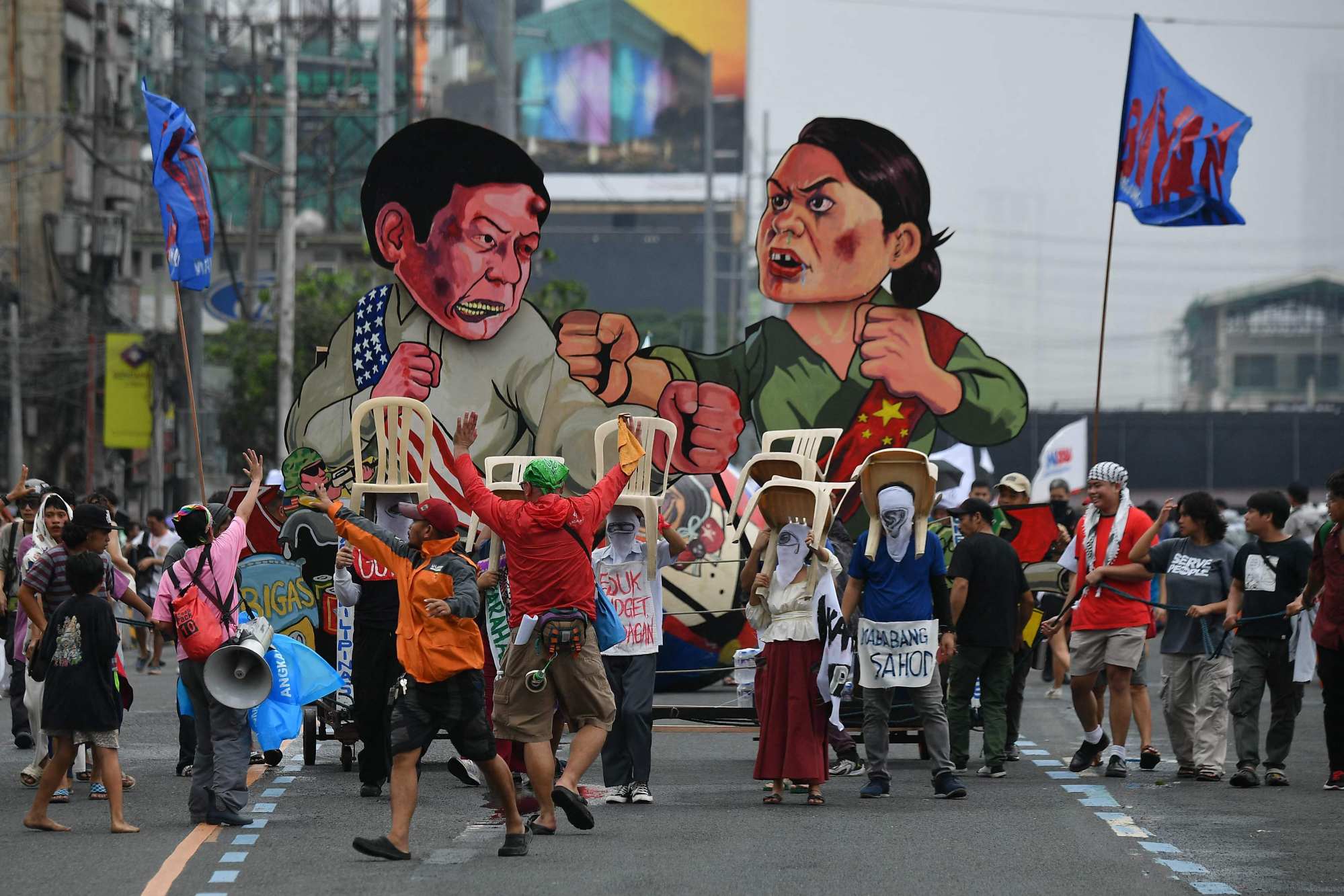
Paradoxically, Marcos himself, then a senator, voted to acquit Corona.
Franco, the political scientist, said the consequences of failing to impeach Duterte-Carpio were clear. “If he [Marcos] does not succeed in convicting the VP, he will be perceived as a lame duck,” she said. “However, he also runs the risk of being only known for that achievement, if he does not convince the public that he has big things in store for them.”
Marcos’ failure to deliver on his campaign promises has only deepened public disillusionment. His pledge to lower rice prices to 20 pesos (36 US cents) per kilo – down from the current range of 38 to 52 pesos – largely failed. And with his administration consumed by its feud with the Dutertes, it seems increasingly unlikely that this promise will materialise any time soon.
As the two dynasties wage their bitter “Game of Thrones”, the public has little reason for optimism. The Marcoses, heirs to a dictator’s legacy of corruption and human rights abuses, have never faced justice for the billions stolen during their family’s 14-year rule. Meanwhile, Rodrigo Duterte’s presidency, defined by extrajudicial killings that critics say claimed 30,000 lives, has left him awaiting trial for crimes against humanity.
Bello summed up the state of Philippine politics: “The feud between these two dynasties will go on, to the ruin of the country, but with the Marcoses in full retreat.”
Yet amid the chaos, there is a glimmer of hope. Bello pointed to the emergence of the “third force”, driven by the youth vote, as a potential alternative to the dynastic politics of the Marcoses and Dutertes.
Franco echoed this sentiment. “I think hope won in the 2025 election,” she said, suggesting that the rise of civil society candidates could mark the beginning of a long-overdue shift in the nation’s politics.